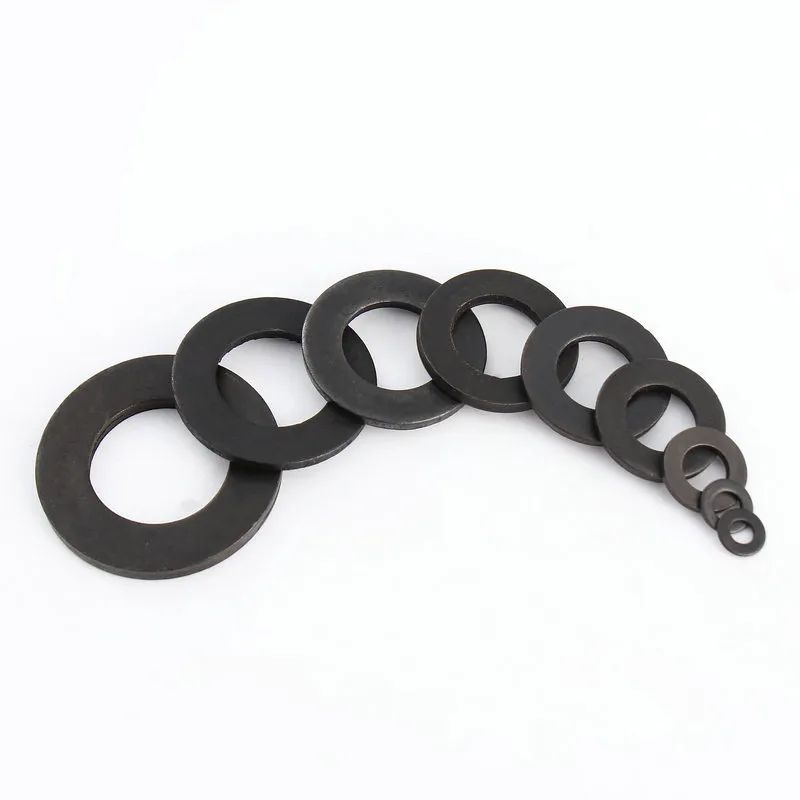

fluorocarbon coated stud bolt
Dec . 03, 2024 18:58 Back to list
fluorocarbon coated stud bolt
Fluorocarbon Coated Stud Bolts Enhancing Durability and Performance
In the realm of engineering and construction, the choice of materials plays a pivotal role in the performance and longevity of structures. One notable innovation that has gained significant traction in recent years is the fluorocarbon coated stud bolt. These specialized fasteners combine the strength and reliability of traditional stud bolts with the enhanced protective properties of a fluorocarbon coating. This article explores the benefits, applications, and future prospects of fluorocarbon coated stud bolts.
What Are Stud Bolts?
Stud bolts are threaded fasteners that are used in various industrial applications, including construction, manufacturing, and energy sectors. They typically consist of a long shaft with threads on both ends, allowing for the secure joining of multiple components. Their design provides excellent load-bearing capabilities, making them indispensable in environments that require high-strength fastening solutions.
The Advantage of Fluorocarbon Coatings
Fluorocarbon coatings are derived from fluoropolymers, which are renowned for their non-stick properties, chemical resistance, and durability. By applying a fluorocarbon coating to stud bolts, manufacturers create a protective barrier that significantly enhances the bolt's performance in harsh environments.
1. Corrosion Resistance One of the standout features of fluorocarbon coated stud bolts is their exceptional resistance to corrosion. In environments where exposure to chemicals, moisture, or salt is prevalent, traditional metal fasteners can degrade over time. The fluorocarbon coating acts as a shield, preventing corrosive elements from penetrating the metal beneath.
2. Temperature Tolerance Fluorocarbon coatings can withstand extreme temperatures without losing their properties. This characteristic makes fluorocarbon coated stud bolts suitable for applications in industries like oil and gas, where equipment often operates in high-temperature environments.
3. Reduced Friction The non-stick properties of fluorocarbon coatings also reduce friction between surfaces. This can be particularly advantageous in assembly applications, where easier insertion of the bolt can lead to faster assembly times and reduced wear on components.
4. Chemical Resistance Fluorocarbon coatings are resistant to a broad range of chemicals, including acids, bases, and solvents. This makes them ideal for use in the chemical processing industry, where exposure to aggressive substances is common.
fluorocarbon coated stud bolt

Applications in Various Industries
Fluorocarbon coated stud bolts are utilized in numerous sectors where durability and reliability are critical. Some notable applications include
- Oil and Gas In extraction and refining processes, these bolts can withstand harsh conditions and prevent failures that might result from corrosion or temperature fluctuations. - Marine Engineering Exposure to seawater and saline environments makes corrosion resistance a primary concern. Fluorocarbon coatings provide the necessary protection for marine applications.
- Chemical Processing Handling corrosive substances puts a strain on traditional fasteners. The chemical resistance of fluorocarbon coated stud bolts ensures safety and integrity in these demanding environments.
- Aerospace In the aerospace industry, weight is a critical factor. Using lightweight materials with efficient coatings allows for enhanced performance and fuel efficiency in aircraft design.
Future Prospects
As industries continue to evolve and demand more specialized materials, the future of fluorocarbon coated stud bolts looks promising. Innovations in coating technologies and manufacturing processes are likely to enhance their properties even further. Researchers are exploring new formulations of fluoropolymer coatings that may offer improved adhesion, easier application, and even more robust resistance to wear and tear.
Additionally, as sustainability becomes a key focus across industries, the development of environmentally friendly coating alternatives may also emerge, providing eco-conscious options without compromising performance.
Conclusion
Fluorocarbon coated stud bolts represent a significant advancement in fastening technology, marrying the strength of traditional stud bolts with the protective benefits of fluorocarbon coatings. Their outstanding durability, resistance to corrosion, and broad application range make them invaluable in various demanding environments. As material science continues to progress, it is likely that these innovative fasteners will play a crucial role in shaping the future of engineering and construction.
Latest news
-
Hot Dip Galvanized Bolts-About LongZe|High Strength, Corrosion Resistance
NewsJul.30,2025
-
High-Strength Hot Dip Galvanized Bolts - Hebei Longze | Corrosion Resistance, Customization
NewsJul.30,2025
-
Hot Dip Galvanized Bolts-Hebei Longze|Corrosion Resistance&High Strength
NewsJul.30,2025
-
High-Strength Hot-Dip Galvanized Bolts-Hebei Longze|Corrosion Resistance&High Strength
NewsJul.30,2025
-
Hot Dip Galvanized Bolts-Hebei Longze|Corrosion Resistance&High Strength
NewsJul.30,2025
-
Hot Dip Galvanized Bolts - Hebei Longze | Corrosion Resistance, High Strength
NewsJul.30,2025

